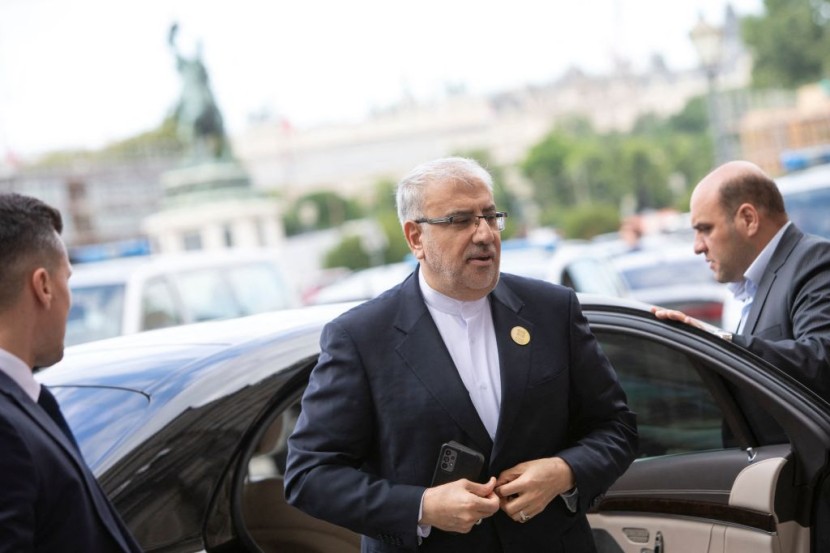Iranian Oil Minister Javad Owji claimed that sabotage was the main reason for the two explosions that damaged the country's main gas pipeline.
The blasts were along Iran's main south-north gas pipeline network and occurred on Wednesday. Iranian authorities also denied reports that the incident had caused gas cuts to industries and offices in some provinces.

Owji said that the "terrorist act of sabotage," noting that it occurred at around 1:00 a.m. in the network of national gas transmission pipelines in two regions in Iran. He also said that only villages near the damaged pipeline were experiencing gas outages, which will be fixed later in the day.
The oil minister pointed to a similar incident that took place in 2011, which he said was also an act of sabotage that resulted in temporary gas outages in four different regions in Iran.
While such attacks are relatively rare in the country, Arab separatist militants in Iran claimed in 2017 that they had blown up two oil pipelines in coordinated attacks in the nation's western Khuzestan province, as per Reuters.
In December last year, Iran ordered the execution of five people whom officials accused of being saboteurs with links to Israel's Mossad intelligence service. The situation was part of a decades-long shadow war that has seen Tehran accuse Jerusalem of attacks on its nuclear and missile efforts.
Owji added that they anticipated such acts of sabotage around the anniversary of the Iranian revolution, which is on Feb. 11, and quickly changed the configuration of the transmission network. This was done to counter the enemy's goal to cause gas outages in major provinces across Iran, according to the Times of Israel.
The first pipeline that was involved in the incident starts in Asaluyeh, which is a hub for Iran's offshore South Pars gas field and runs 1,270 kilometers to the Chaharmahal and Bakhtiari provinces.
Read Also : Estonia Believes Baltic States Should Prepare for Russian 'War Machine' in Three or Four Years
Oil Minister Claims Sabotage
The manager of the country's gas network control center, Saeed Aghili, said that they were hoping that the pipeline would be repaired quickly and become operational as soon as possible. The incident comes as, in the past few years, tensions have risen as Iran faces an economy hobbled by international sanctions.
These restrictions were implemented over its nuclear program and Tehran has also faced rare mass civil unrest, the most recent of which was in 2022, over the death of Mahsa Amini due to her alleged non-compliance with hijab rules.
The Israel-Hamas war in the Gaza Strip has also worsened relations between Iran and Israel. Iranian-linked groups, such as Yemen's Houthis and Lebanon's Hezbollah, have launched repeated strikes on Israel and on vessels in the Red Sea.
The head of the United Nations nuclear watchdog on Tuesday issued a warning that Iran is "not entirely transparent" regarding its atomic program, said Aljazeera. The director-general of the International Atomic Energy Agency (IAEA), Rafael Mariano Grossi, said that there is "an accumulation of complexities" in the wider Middle East.
Following the collapse of Iran's 2015 nuclear deal with world powers, it has pursued nuclear enrichment just below weapons-grade levels. Tehran has accumulated enough enriched uranium to build several weapons if it chooses to do so.








